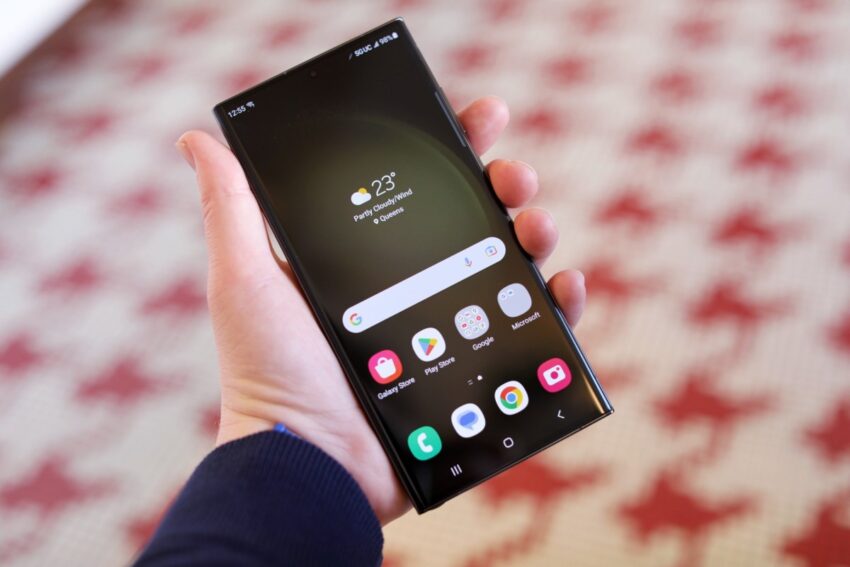
landfall spyware abused zero-day to hack samsung A newly identified Android spyware has been exploiting a zero-day vulnerability to target Samsung Galaxy devices for nearly a year, affecting users primarily in the Middle East, according to exclusive research shared with TechCrunch.
landfall spyware abused zero-day to hack samsung
Overview of the Spyware
The spyware, dubbed “Landfall,” has raised significant concerns among cybersecurity experts due to its sophisticated capabilities and the duration of its undetected operation. Researchers have indicated that this malware was able to infiltrate devices without the users’ knowledge, allowing attackers to gain access to sensitive information and control over the devices.
Technical Details
Landfall operates by leveraging a zero-day vulnerability in the Android operating system, which means it exploits a flaw that was previously unknown to both the developers of the OS and the public. This type of vulnerability is particularly dangerous because it allows attackers to bypass security measures that would typically protect users from malware.
Once installed, Landfall can perform a variety of malicious activities, including:
- Accessing and exfiltrating personal data such as contacts, messages, and photos.
- Activating the microphone and camera to conduct surveillance.
- Tracking the device’s location in real-time.
- Interacting with other applications to gather more information or spread the infection.
Impact on Users
The primary targets of Landfall have been users in the Middle East, a region that has seen a surge in cyber espionage activities. The implications of such spyware are profound, especially for individuals who may be involved in sensitive professions or activities, such as journalists, activists, or government officials.
Victims of Landfall may experience:
- Loss of privacy as their personal communications and activities are monitored.
- Potential financial loss if sensitive information is used for fraud.
- Emotional distress stemming from the invasion of privacy and the feeling of being constantly watched.
Case Studies
While specific case studies of individuals affected by Landfall have not been disclosed, similar spyware has previously targeted journalists and human rights activists in the region. For instance, the Pegasus spyware, developed by the NSO Group, has been linked to numerous high-profile cases of surveillance against individuals who challenge governmental authority.
The emergence of Landfall suggests a worrying trend where advanced spyware is increasingly being used to monitor and suppress dissent in politically sensitive areas. The ability of such malware to remain undetected for extended periods poses a significant challenge for cybersecurity professionals and law enforcement agencies.
Response from Samsung and Google
In light of the discovery of Landfall, both Samsung and Google have been urged to respond swiftly. Samsung, as the manufacturer of the Galaxy devices, is responsible for ensuring that its products are secure and that users are protected from potential threats.
Google, which develops the Android operating system, also plays a crucial role in addressing vulnerabilities. Both companies have been criticized in the past for their response times to security threats, and the emergence of Landfall may prompt them to reevaluate their protocols.
Security Measures and Recommendations
To mitigate the risks associated with spyware like Landfall, users are encouraged to adopt several security measures:
- Keep Software Updated: Regularly updating the operating system and applications can help protect against known vulnerabilities.
- Install Security Software: Utilizing reputable security applications can provide an additional layer of protection against malware.
- Be Cautious with Permissions: Users should be vigilant about the permissions they grant to applications, especially those that request access to sensitive information.
- Monitor Device Behavior: Unusual behavior from a device, such as unexpected battery drain or unfamiliar applications, can be a sign of malware infection.
Broader Implications for Cybersecurity
The discovery of Landfall highlights several broader implications for cybersecurity in the context of mobile devices:
- Increased Targeting of Mobile Devices: As smartphones become integral to daily life, they are increasingly targeted by cybercriminals and state-sponsored actors.
- Need for Enhanced Security Protocols: The existence of zero-day vulnerabilities underscores the necessity for more robust security measures and faster response times from tech companies.
- Importance of User Awareness: Educating users about cybersecurity risks and best practices is essential in combating the threat of spyware and other malicious software.
Stakeholder Reactions
The revelation of Landfall has prompted reactions from various stakeholders, including cybersecurity experts, privacy advocates, and government officials. Many experts have expressed alarm at the sophistication of the spyware and the implications for user privacy.
Privacy advocates have called for stronger regulations to protect individuals from invasive surveillance technologies. They argue that the use of spyware like Landfall represents a significant threat to civil liberties, particularly in regions where freedom of expression is already under threat.
Government officials in affected regions have also voiced concerns, emphasizing the need for international cooperation to combat cyber threats. The potential for espionage and surveillance to undermine democratic processes and human rights is a pressing issue that requires urgent attention.
Conclusion
The emergence of Landfall spyware is a stark reminder of the vulnerabilities that exist within our increasingly digital lives. As technology continues to evolve, so too do the tactics employed by cybercriminals and state-sponsored actors. The exploitation of zero-day vulnerabilities poses a significant challenge for both users and tech companies alike.
Moving forward, it is imperative for both individuals and organizations to remain vigilant and proactive in their cybersecurity efforts. By adopting best practices and advocating for stronger security measures, we can work towards a safer digital environment for all.
Source: Original report
Was this helpful?
Last Modified: November 7, 2025 at 4:36 pm
3 views















